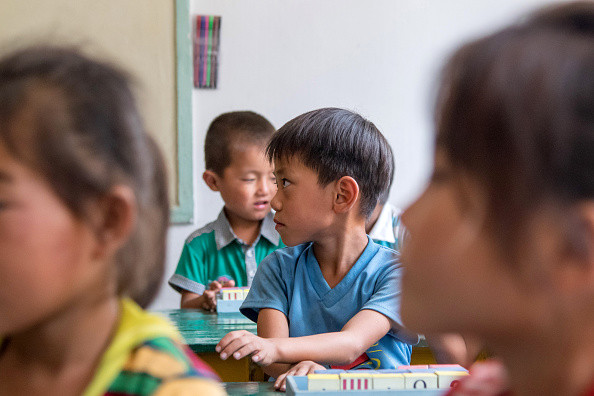North Korea: Over 25,000 children suffering from malnutrition

UNICEF has warned that food production is down by a staggering 20% in North Korea and over 25,000 children are in urgent need of attention due to malnutrition. UN's children's fund is now seeking nearly £13m ($18.53m, €17m) to assist the children affected by the drought and reduced government rations.
"The severe drought last year reduced food production and children's access to safe, clean water," said Timothy Schaffter, Unicef's representative in North Korea. "Without safe water, children are at greater risk of diarrhoea, which is a leading cause of malnutrition and death. We have reports of a 72% increase in diarrhoea among children under five in the most severely drought-affected provinces."
"If we are unable to secure additional funding, our supplies of essential medicines will start running out in March, nutrition supplies will be depleted by mid-year, and our highly successful immunisation programme will run out of basic vaccines before the year's end."
Previously, governments have been hesitant in contributing funds towards North Korea due to the country's nuclear agenda. Earlier, the UN Security Council held an emergency meeting in New York and "strongly condemned" what appeared to be a nuclear test conducted by North Korea though the nation said it was a hydrogen bomb detonation.
"The members of the Security Council ... recalled that they have previously expressed their determination to take further significant measures in the event of another nuclear test. In line with this commitment and the gravity of this violation, the members of the Security Council will begin to work immediately on such measures in a new Security Council resolution," said Elbio Rosseli, Uruguay's UN Ambassador, who is the council's acting president.
Referring to the severe drought that hit four agricultural provinces in North Korea in 2015, UNICEF further said in a statement: "The impact of this will continue into 2016. Cereal rations were reduced, impacting the nutritional and health status of women and children."
Meanwhile, UNICEF is seeking a total of £1.9bn in its global efforts to help children in need worldwide. According to the UNICEF 2016 plans, 12% of the donations will be spent on child protection, 12% on health, 15% on nutrition, 21% on water and hygiene, 25% on education and 12% on other needs. Nearly a quarter of the funds will be used towards educating the children affected by the civil war in Syria, reported The Guardian.
© Copyright IBTimes 2025. All rights reserved.






















